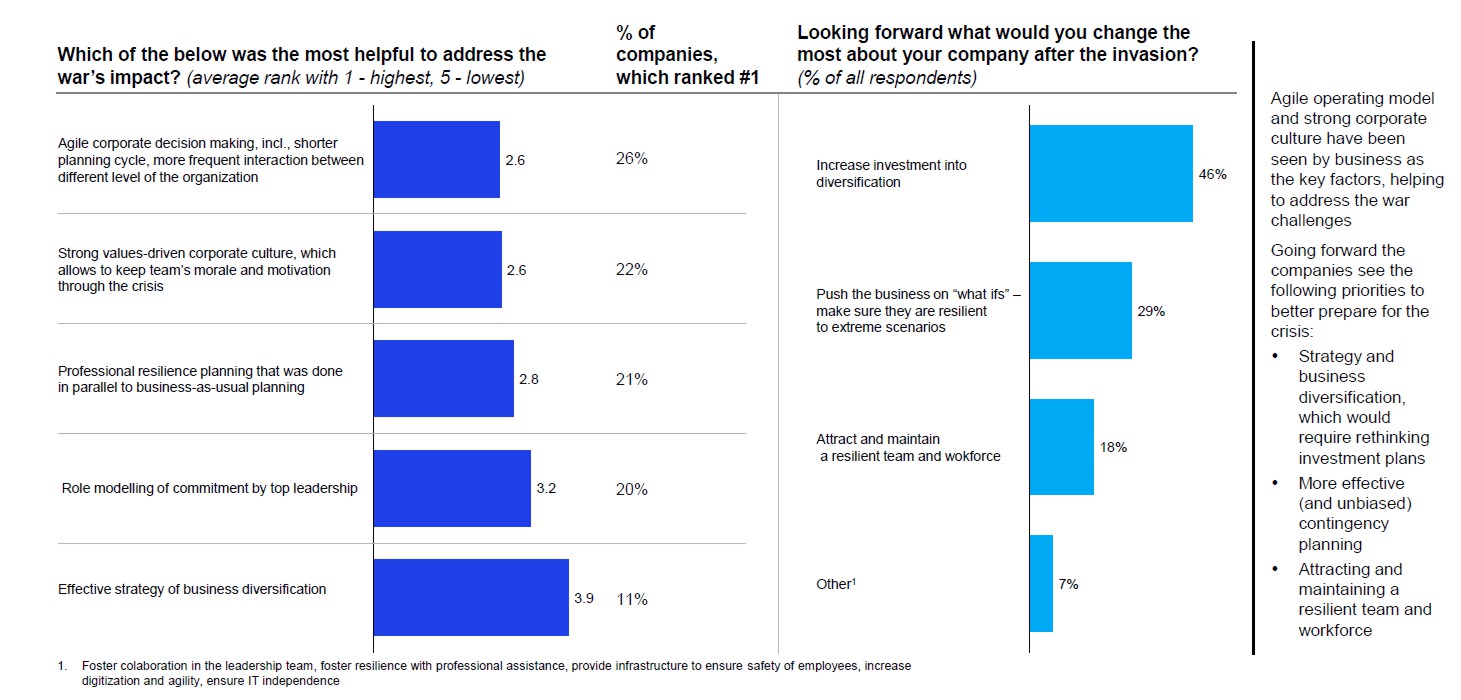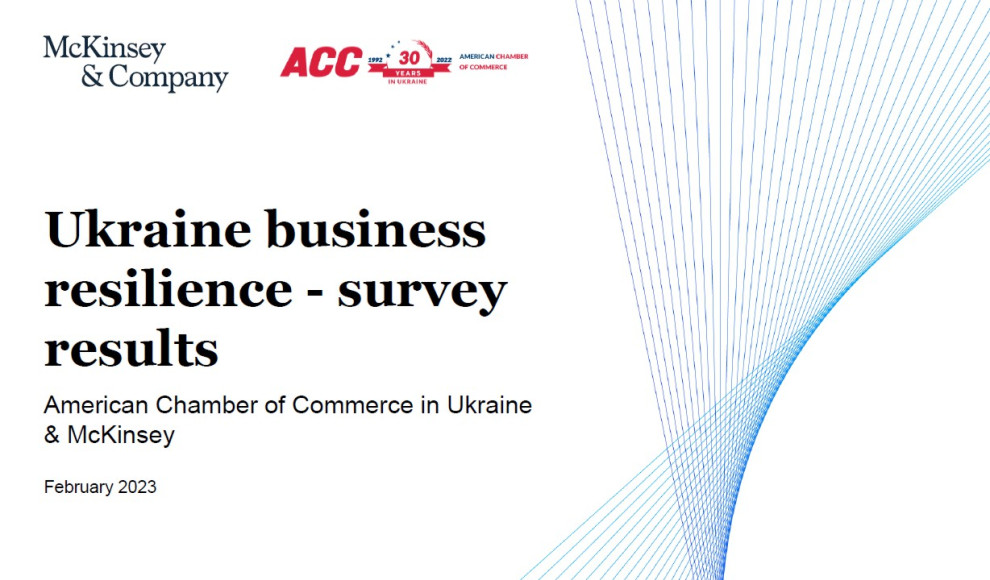Key findings
1. The war has put massive toll on Ukrainian business, however companies demonstrated strong resilience, with some even capturing growth opportunities:
- 47% of companies experienced sales decline >30% (incl. 19% >50% decline), with agriculture, retail, mining and metallurgy being the most hit
- Only 2% of companies reduced headcount more than 30% despite more significant sales decline
- ~15% of companies have grown in 2022 despite the war
2. The war pressure on business is likely to stay or even increase in 2023
- “Decreased demand” (25%), “physical damage of facilities” (23%), and “disrupted supply chains” (19%) have been called among the main single challenging impacts of war in 2022
- Aggregated demand is likely to further deteriorate in 2023 as overall GDP growth remains uncertain and the consumer spending
power might further weaken (incl. drain of savings, increasing unemployment, salaries cuts)
3. Most companies have developed in house “contingency plans”, but >40% of companies see their plans as not fully effective
- 90% of companies have developed “contingency plans”, out of which: 61% have established prewar dedicated task forces (cross fun ctional teams or specialized risk function), 33% have developed such plans by the business units, and 6% have leveraged professional external help to prepare such plans
- 40% of companies acknowledged that the plan did not properly work, incl. 29% did not anticipate the scale of disruption, and
7% did not have adequate resources to implement the plan
4. While agile operating model is seen as the most helpful factor to address ongoing crisis, going forward businesses see diversification, more
effective contingency planning, and building resilient teams as key priorities
- Agile operating model and strong corporate culture have been seen by business as the key factors, helping to address the war
cha llenges (called #1 factor by 26% of companies) - Going forward, the companies see the following priorities to better prepare for the crisis:
– Strategy and business diversification, which would require rethinking investment plans (46%)
– More effective (and unbiased) contingency planning (29%)
– Attracting and maintaining a resilient team and workforce (18%)
1: The war has put a massive toll on Ukrainian business; however, companies demonstrated strong resilience, with some even capturing growth opportunities
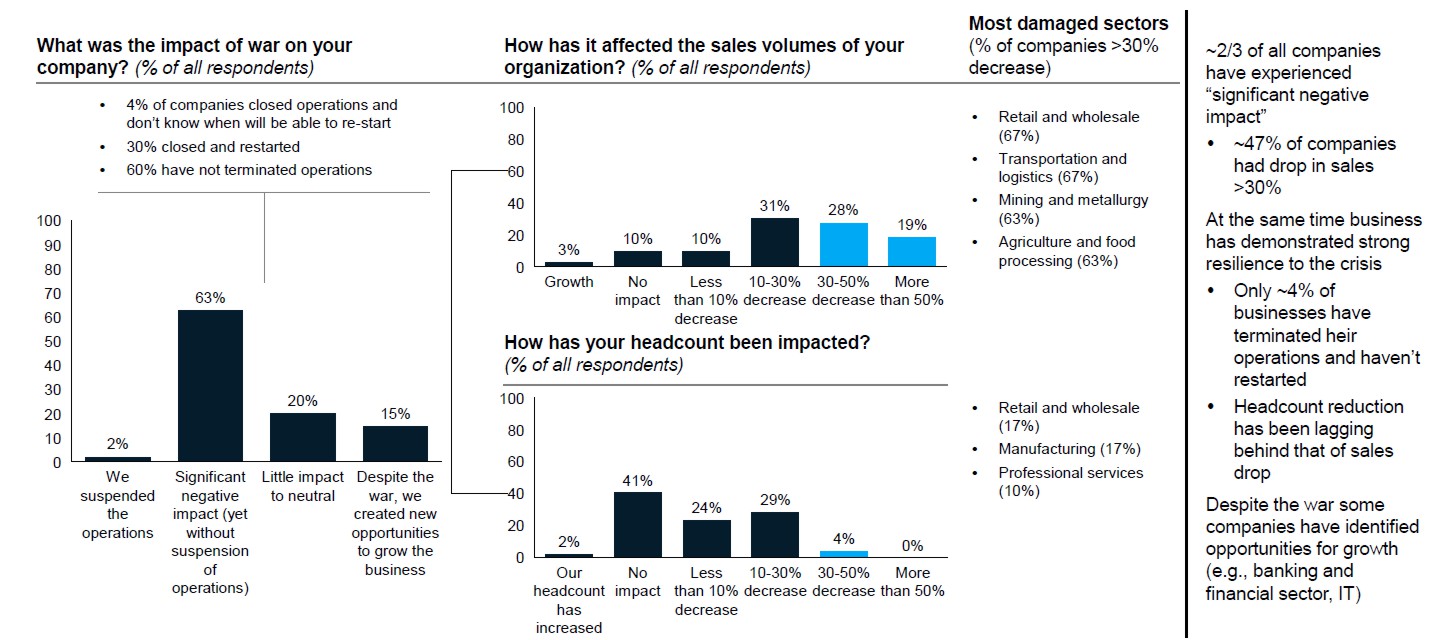
2: Decreased demand, physical damage, and disrupted supply chains are among the key challenging impacts of the war. Unfortunately, some of these challenges are likely to stay or even deteriorate in 2023
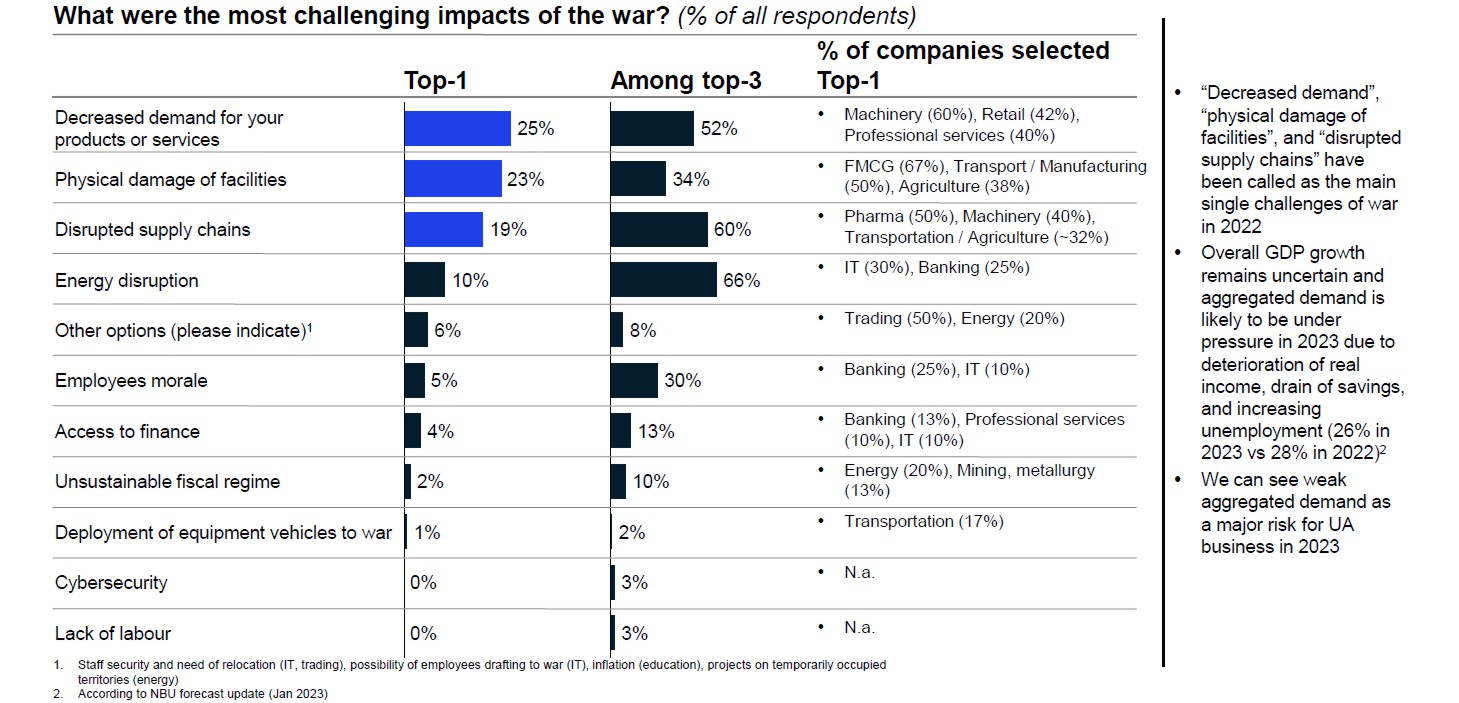
3: Most companies have developed in house “contingency plans”, but >40% of companies see their plans as not fully effective
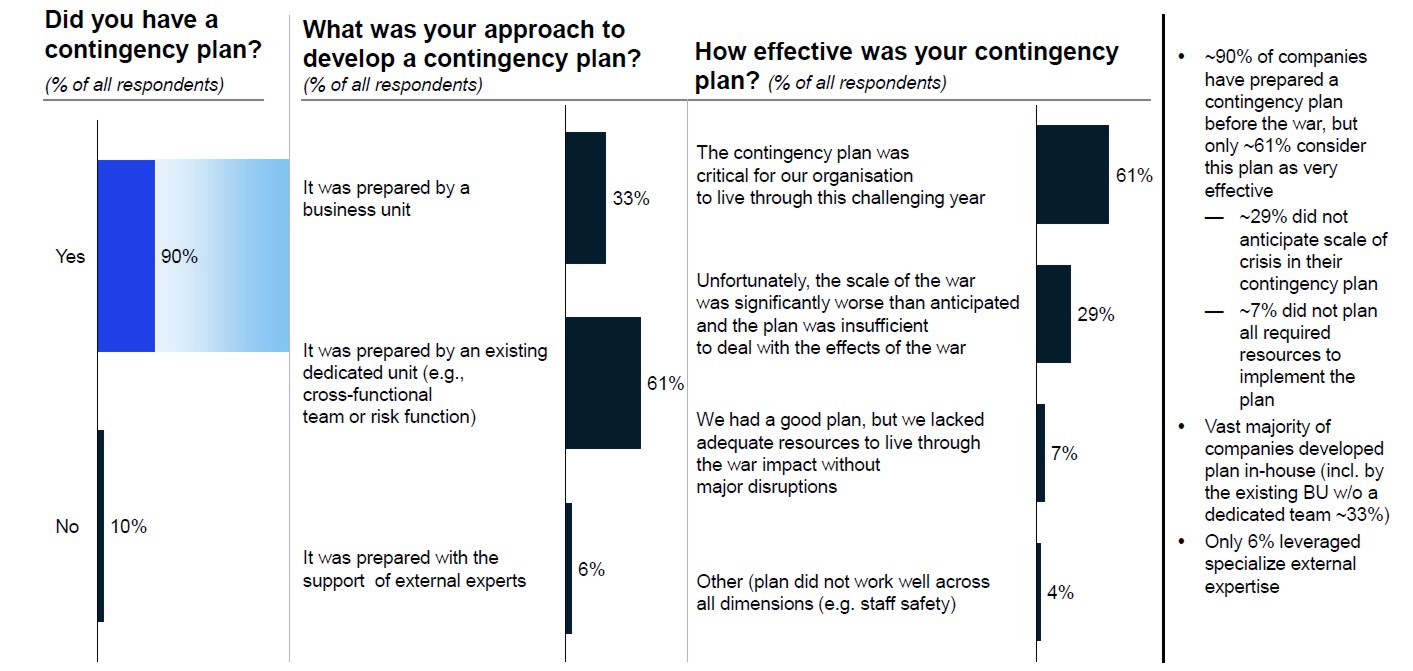
4: While agile operating model is seen as the most helpful factor to address current crisis, going forward businesses see diversification, more effective contingency planning and building resilient teams as key priorities
